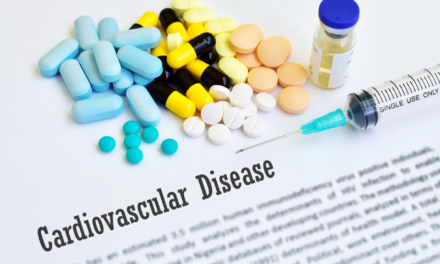Anabolic steroids are synthetic drugs that mimic the effects of the male sex hormone testosterone. These substances have been widely used for their ability to increase muscle mass and strength, but they also have significant effects on metabolism and appetite. In this article, we will explore the role of appetite in metabolism and how anabolic steroids affect both of these processes. We will also examine the short-term and long-term effects of anabolic steroids on appetite and metabolism and discuss the implications of these effects for athletes and fitness enthusiasts.
The Role of Appetite in Metabolism
Appetite refers to the desire to eat food, and it is regulated by a complex interplay of physiological and psychological factors. Hormones such as ghrelin and leptin, as well as neurotransmitters like dopamine and serotonin, play important roles in regulating appetite. Environmental factors such as stress, social cues, and availability of food also influence appetite.
Metabolism refers to the processes by which the body converts food into energy and other useful substances. It is a complex process that involves a variety of biochemical reactions and is regulated by hormones such as insulin, thyroid hormones, and cortisol.
The Relationship Between Appetite and Metabolism
Appetite and metabolism are closely linked, and changes in one can affect the other. For example, when we eat food, our digestive system breaks it down into nutrients that can be used for energy. These nutrients are then absorbed into the bloodstream and transported to cells throughout the body. The amount of energy that is produced from these nutrients depends on the body’s metabolic rate, which is influenced by a variety of factors, including age, sex, body composition, and activity level.
How Anabolic Steroids Affect Appetite and Metabolism
Anabolic steroids have significant effects on both appetite and metabolism. These effects are the result of the drug’s ability to bind to androgen receptors in the body, which leads to an increase in protein synthesis and muscle growth.
Anabolic Steroids and Appetite
One of the primary effects of anabolic steroids is an increase in appetite. This increase is thought to be mediated by the drugs’ effects on hormones such as ghrelin and leptin, as well as their ability to stimulate the release of neurotransmitters like dopamine and serotonin.
The mechanism of action by which anabolic steroids increase appetite is not fully understood, but it is believed to be related to the drugs’ effects on the hypothalamus, a region of the brain that regulates appetite and metabolism.
The Impact of Anabolic Steroids on Appetite and Metabolism in the UK
Anabolic steroids, synthetic drugs that mimic testosterone, have gained popularity in the UK for their muscle-building effects. In this section, we will explore how anabolic steroids impact appetite and metabolism, specifically focusing on the UK context.
Appetite Regulation and Anabolic Steroids
In the UK, anabolic steroid use has been associated with an increase in appetite. The drugs’ interaction with hormones like ghrelin and leptin, as well as neurotransmitters such as dopamine and serotonin, are believed to contribute to this effect. The precise mechanism through which anabolic steroids influence appetite in the UK remains partially understood, but it is thought to involve the drug’s impact on the hypothalamus, a region of the brain responsible for regulating appetite and metabolism.
Anabolic Steroids and Metabolism
Anabolic steroids also have significant effects on metabolism, including an increase in metabolic rate. This increase is the result of the drug’s ability to stimulate the production of proteins and other molecules involved in energy metabolism.
The mechanism of action by which anabolic steroids increase metabolic rate is not fully understood, but it is believed to be related to the drugs’ effects on hormones such as insulin and thyroid hormones.
Short-term Effects of Anabolic Steroids on Appetite and Metabolism
The short-term effects of anabolic steroids on appetite and metabolism are generally positive. These drugs can lead to an increase in muscle mass, a decrease in body fat, and improved performance in sports and other physical activities.
However, anabolic steroids also have a number of side effects, including acne, hair loss, and mood swings. In addition, these drugs can be addictive, and their use can lead to serious health problems.
Long-term Effects of Anabolic Steroids on Appetite and Metabolism
The long-term effects of anabolic steroids on appetite and metabolism are largely negative. Prolonged use of these drugs can lead to a number of health problems, including cardiovascular disease, liver damage, and hormonal imbalances.
In addition, the use of anabolic steroids can lead to the development of eating disorders, such as anorexia and bulimia. This is because some individuals who use anabolic steroids become obsessed with their body image and may engage in extreme dieting and exercise in order to achieve their desired physique.
Hormonal imbalances are also a potential long-term effect of anabolic steroid use. These drugs can disrupt the body’s natural hormone balance, leading to infertility, impotence, and other reproductive problems.
Finally, anabolic steroid use can also lead to addiction. Some individuals who use these drugs may become dependent on them in order to achieve the desired effects on their bodies and may experience withdrawal symptoms when they try to stop using them.
Conclusion
In summary, anabolic steroids have significant effects on both appetite and metabolism. These drugs can lead to an increase in appetite and metabolic rate, which can result in an increase in muscle mass and improved performance in physical activities. However, the use of anabolic steroids also comes with a number of potential negative effects, including the development of eating disorders, hormonal imbalances, and addiction.
Athletes and fitness enthusiasts who are considering using anabolic steroids should be aware of these potential risks and should only use these drugs under the guidance of a healthcare professional. It is also important to remember that there are many natural and healthy ways to improve athletic performance and build muscle mass, such as through proper nutrition and exercise.
Future research directions in this area may focus on developing safer and more effective alternatives to anabolic steroids, as well as on understanding the long-term effects of these drugs on appetite and metabolism. By continuing to study the effects of anabolic steroids, we can better understand their impact on the body and develop strategies to promote safer and more responsible use.
FAQs
Q: What are anabolic steroids?
A: Anabolic steroids are synthetic versions of the hormone testosterone that are used to promote muscle growth and improve athletic performance.
Q: How do anabolic steroids affect appetite?
A: Anabolic steroids can increase appetite by stimulating the release of certain hormones that regulate hunger and satiety.
Q: What is the relationship between appetite and metabolism?
A: Appetite and metabolism are closely related, as the body’s metabolic rate is influenced by the amount and type of food consumed.
Q: Can anabolic steroids improve athletic performance?
A: Yes, anabolic steroids can improve athletic performance by increasing muscle mass and strength and reducing body fat.
Q: Are there any short-term side effects of anabolic steroid use?
A: Yes, some short-term side effects of anabolic steroid use include increased muscle mass, decreased body fat, and improved performance. However, there are also potential negative effects, such as acne, hair loss, and mood swings
Q: What are the long-term effects of anabolic steroid use?
A: Long-term effects of anabolic steroid use can include the development of eating disorders, hormonal imbalances, and addiction.
Q:Can anabolic steroids be used safely?
A: Anabolic steroids should only be used under the guidance of a healthcare professional and should be used responsibly in order to minimize the risk of negative side effects.
Q: Are there natural alternatives to anabolic steroids?
A: Yes, there are many natural and healthy ways to improve athletic performance and build muscle mass, such as through proper nutrition and exercise.
Q: What is the future of research in this area?
A: Future research may focus on developing safer and more effective alternatives to anabolic steroids, as well as on understanding the long-term effects of these drugs on appetite and metabolism.
Author

Dr. Aditya K. Sharma
I am Dr. Aditya Sharma, a dedicated urologist specializing in kidney transplants and advanced urological surgeries. My career is driven by a passion for delivering exceptional care and pioneering surgical techniques. Outside the operating room, I have a keen interest in studying the effects of anabolic steroids on bodybuilding, seeking to understand the fine line between enhancing performance and maintaining health.








